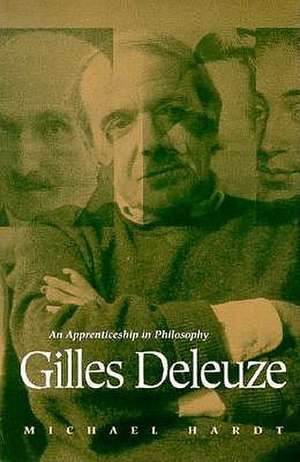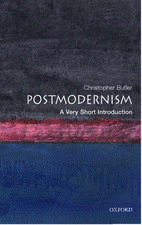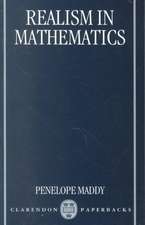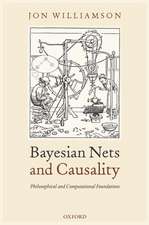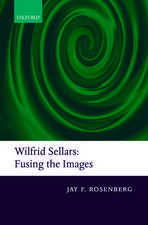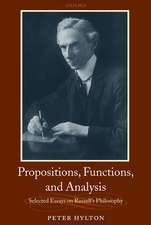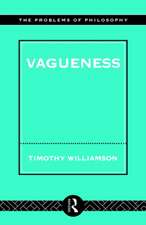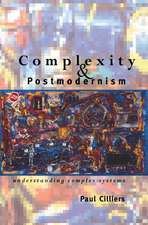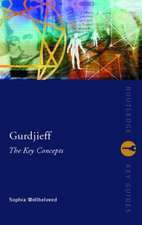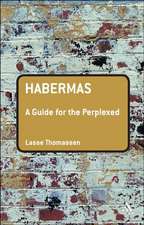Gilles Deleuze: An Apprenticeship in Philosophy
Autor Michael Hardten Limba Engleză Paperback – 5 feb 1993
The key to understanding Deleuze's complete body of work.
"A coherent and systematic reading of a philosopher who has consistently courted the incoherent and systematic. What we must avoid are encounters with those who cultivate sad passions (the men of ressentiment in the Nietzschean formulation); and we must increase our power to compose new relationships with compatible bodies with whom we share a common notion. Hardt's exceptional book is one such joyful encounter." -Times Literary Supplement"An excellent book. The project of Gilles Deleuze is to situate Deleuze squarely in the camp of those who seek to deepen and transform our philsophical understanding and political situation. Hardt seems to me to be directly on target." -Substance"Both for its object and its method of study, here is a work that will mark the future of the field of Deleuzian studies." -Eric Alliez, Critique"Hardt's reading of Deleuze is complex and precise. He follows the intricacies of the argument and of the shifting positions with considerable skill, thus providing us with a study not only of the Deleuzian way of doing philosophy, but of Deleuzian reading-of the selectivity of its targets, of its agonistic approach to philosophy, through indirect attack on one main opponent. Reading Hardt reading Deleuze reading, we can understand, for instance, why Deleuze's exposition usually takes the form not of a dialectic but of a correlation, of a system of differences." -Radical Philosophy"How can we forget the dialectic? How an we affirm a constitutive ontology? Through its efforts to respond to these questions, Gilles Deleuze's philosophical apprenticeship presents the Bildungsroman of any contemporary philosophy that wants to break away from the destiny of modernity. Michael Hardt unravels the guiding thread of this philosophy of the future." -Antonio Negri"Hardt's interpretations are exceptionally well-grounded in the history of philosophical discourse, a discourse he exercises with discipline and rare insight. As the only major work on Deleuze in English, this book will undoubtedly set the standard for any future study of one of France's most important thinkers-and it is a very high standard, indeed." -Peggy Kamuf
"A coherent and systematic reading of a philosopher who has consistently courted the incoherent and systematic. What we must avoid are encounters with those who cultivate sad passions (the men of ressentiment in the Nietzschean formulation); and we must increase our power to compose new relationships with compatible bodies with whom we share a common notion. Hardt's exceptional book is one such joyful encounter." -Times Literary Supplement"An excellent book. The project of Gilles Deleuze is to situate Deleuze squarely in the camp of those who seek to deepen and transform our philsophical understanding and political situation. Hardt seems to me to be directly on target." -Substance"Both for its object and its method of study, here is a work that will mark the future of the field of Deleuzian studies." -Eric Alliez, Critique"Hardt's reading of Deleuze is complex and precise. He follows the intricacies of the argument and of the shifting positions with considerable skill, thus providing us with a study not only of the Deleuzian way of doing philosophy, but of Deleuzian reading-of the selectivity of its targets, of its agonistic approach to philosophy, through indirect attack on one main opponent. Reading Hardt reading Deleuze reading, we can understand, for instance, why Deleuze's exposition usually takes the form not of a dialectic but of a correlation, of a system of differences." -Radical Philosophy"How can we forget the dialectic? How an we affirm a constitutive ontology? Through its efforts to respond to these questions, Gilles Deleuze's philosophical apprenticeship presents the Bildungsroman of any contemporary philosophy that wants to break away from the destiny of modernity. Michael Hardt unravels the guiding thread of this philosophy of the future." -Antonio Negri"Hardt's interpretations are exceptionally well-grounded in the history of philosophical discourse, a discourse he exercises with discipline and rare insight. As the only major work on Deleuze in English, this book will undoubtedly set the standard for any future study of one of France's most important thinkers-and it is a very high standard, indeed." -Peggy Kamuf
| Toate formatele și edițiile | Preț | Express |
|---|---|---|
| Paperback (1) | 162.81 lei 6-8 săpt. | |
| Taylor & Francis – 29 apr 1993 | 162.81 lei 6-8 săpt. | |
| Hardback (1) | 496.53 lei 6-8 săpt. | |
| Taylor & Francis – 29 apr 1993 | 496.53 lei 6-8 săpt. |
Preț: 119.09 lei
Preț vechi: 153.90 lei
-23% Nou
Puncte Express: 179
Preț estimativ în valută:
22.80€ • 23.45$ • 18.91£
22.80€ • 23.45$ • 18.91£
Carte indisponibilă temporar
Doresc să fiu notificat când acest titlu va fi disponibil:
Se trimite...
Preluare comenzi: 021 569.72.76
Specificații
ISBN-13: 9780816621613
ISBN-10: 0816621616
Pagini: 168
Dimensiuni: 152 x 229 x 13 mm
Greutate: 0.23 kg
Ediția:First edition
Editura: University of Minnesota Press
Colecția Univ Of Minnesota Press
ISBN-10: 0816621616
Pagini: 168
Dimensiuni: 152 x 229 x 13 mm
Greutate: 0.23 kg
Ediția:First edition
Editura: University of Minnesota Press
Colecția Univ Of Minnesota Press
Notă biografică
Michael Hardt is the translator of Antonio Negri’s Savage Anomaly: The Power of Spinoza’s Metaphysics and Politics (1990) and Giorgio Agamben’s The Coming Community (Minnesota, 1993). The University of Minnesota Press will also publish his forthcoming book, coauthored with Negri, Labor of Dionysus: Communism as Critique of the Capitalist and Socialist State-form.
Cuprins
Introduction: Hegel and the Foundations of Poststructuralism, Preliminary Remark, The Early Deleuze: Some Methodological Principles Chapter 1. Bergsonian Ontology: The Positive Movement of Being Chapter 2. Nietzschean Ethics: From Efficient Power to an Ethics of Affirmation Chapter 3: Spinozian Practice: Affirmation and Joy Speculation Chapter 4: Conclusion: An Apprenticeship in Philosophy, Notes, Works Cited, Index
